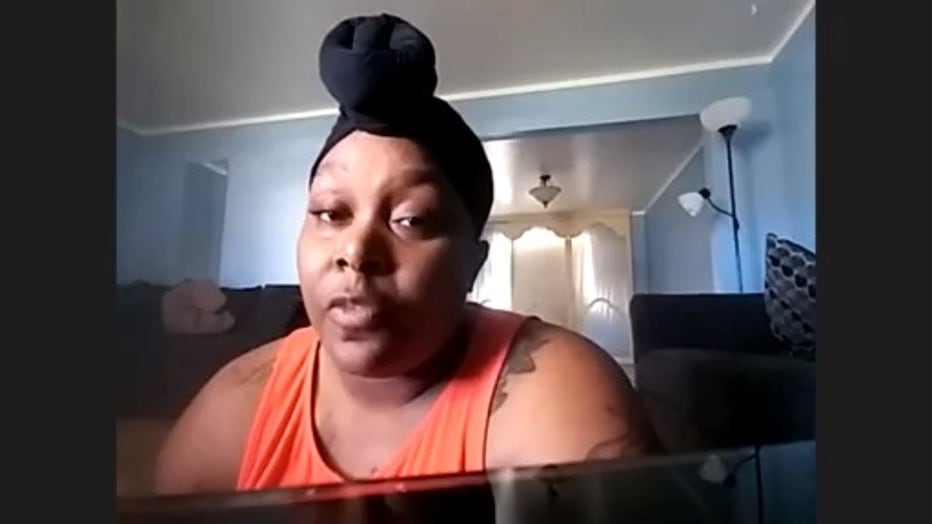Woman shares her long road to COVID-19 recovery, says there is hope
(FOX 2) - "It is a very serious virus but, you also have people who recover," said Eugenia Wisdom.
Eugenia wisdom is well on the road to recovery. The 34-year-old had a nasty bout with COVID-19 fighting off the bug under the same roof as her fiancée and four children.
"Thank God none of my kids caught it and we're recovering," she said.
Her troubles began two weeks ago. She knew something was wrong when she lost her breath going up a flight of stairs. That, coupled with mild flu symptoms, led her to urgent care where she tested positive for COVID-19.
"My bedroom has a master bathroom attached to it," she said. "I could not make it from the bed to the bathroom without assistance. I was having asthma attack after asthma attack. My eyes were hurting just to blink."
FOX 2: "Was there ever any point where you felt like, 'this could be it?'"
"I was scared to go to sleep, every single night," Wisdom said. "I didn't think that I was going to make it - at all."
RELATED: Michigan confirms another 62 more coronavirus deaths on Friday, 1,953 new cases
"In Detroit right now we're at the exponential phase of the curve and mortality is as high as 3.4 percent," said Dr. Teena Chopra. "This virus is no flu in mortality its almost 10 times as high as flu."
Chopra, an infectious disease expert from the Detroit Medical Center, says the vast majority of COVID-19 patients recover.
Wisdom says she did it by staying hydrated, drinking warm liquids, resting and consuming a lot of vitamin C.

COVID-19 survivor Eugenia Wisdom.
Chopra says that's a good game plan when fighting COVID-19 at home, but it's critical to know when to go to the hospital to get treatment.
"The most important thing is worsening symptoms," Chopra said. "If your fever is not breaking and it's been several days, if your cough is getting worse and if you're feeling chest tightness and severe shortness of breath, I think those are absolute for you to go to the hospital.
"We are seeing a lot of patients coming to us when they have very severe disease. We don't want that. We don't want them to come to us when they're so bad we can't do anything about it. There is a treatment available. We can treat them with the drug hydroxychloroquine so if they come to us early on it will be easier for them to recover faster and be able to go home."
RELATED: Michigan Medicine predicts social distancing could reduce coronavirus cases by 65 percent
As for Wisdom she's urging the public to take COVID-19 seriously and then take heart.
"Don't be scared to ask questions and don't be scared to get tested because you need to know," she said. "There are stories of people who are recovering and I'm one of them. It was a very long road."
Hope and hard truths and here's another: Dr. Chopra says the outbreak will get worse before it gets better, but physicians and other medical professionals are doing everything they can to treat covid-19 patients and beat this bug.
The Detroit Health Department told Wisdom to stay in isolation for another three days after all her symptoms subside and it has to be at least seven days since her symptoms started. The next step is she needs to pass two COVID-19 tests which is the standard protocol.
On Monday, Gov. Gretchen Whitmer issued a stay-home order. The strict order came with a warning that a million people in Michigan could need hospital beds if Michiganders keep going out in public and spreading the illness, especially if unknowingly.
The stay-home order lasts for at least three weeks and is in efforts to start slowing the spread of the virus to help preserve hospital staff, beds and ventilators.
You can get more details about what can and cannot be done under the stay-home order here.

